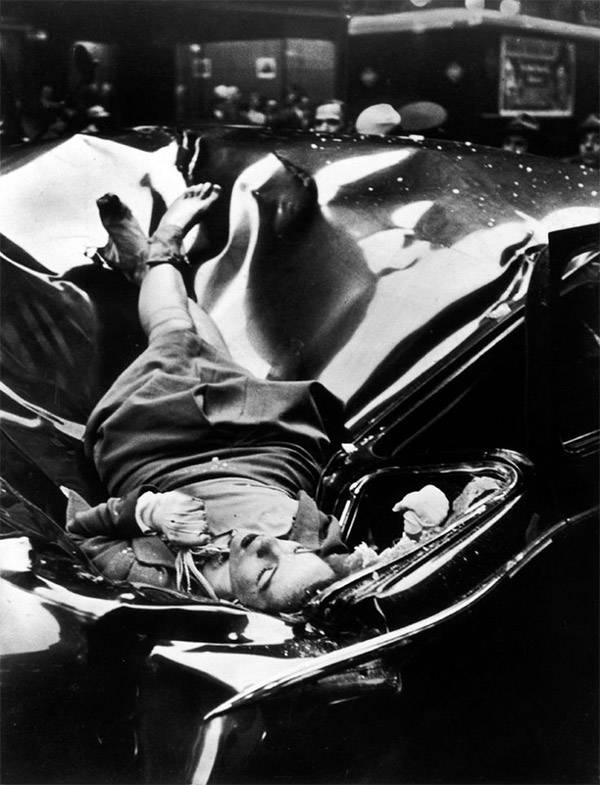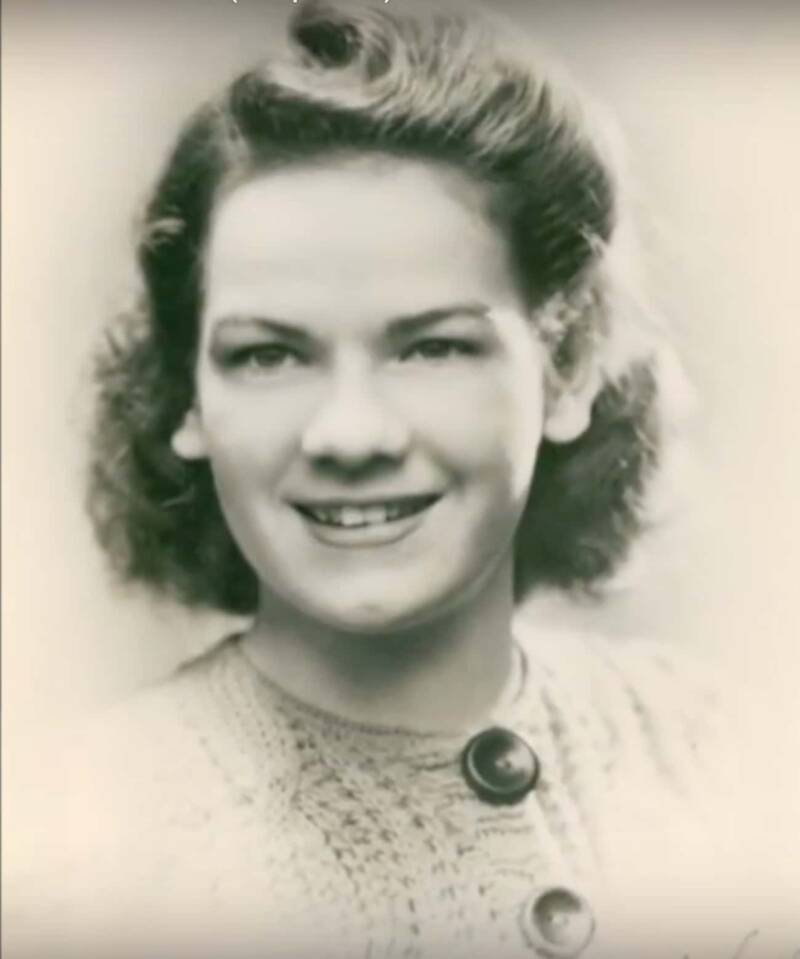In May 1947, a haunting photo filled a full page of LIFE magazine. It was taken by a photography student named Robert Wiles, and it depicted a suicide victim lying on a car, the metal crumpled around her. She had landed with her ankles crossed, her white-gloved hand holding her necklace, and her face serene, as if she was sleeping. The photo of this woman, Evelyn McHale, became infamous and received the name “The Most Beautiful Suicide”.
An Infamous Photo

The picture is unsettling on many levels. Some people might be struck by her youth, at what might’ve brought her to this end. Others might envision what it might’ve felt like to crash and make such a dent into the roof of a United Nations limousine. And others may be disturbed by how the scene seems to romanticize such a horrific event.
Not much is known about McHale or the reason she took her own life. Her suicide note is vague, and most people know her through the photo of her death.
Read More: 23-Year-Old Commits Suicide Following Complications from His Circumcision
Jumping from the Empire State Building

McHale’s demise made history for another tragic reason. She had jumped from the 86th-floor observation deck of the Empire State Building, making her the 12th person to commit suicide from the deck since its completion in 1931. However, she was only the 6th to have reached the street, with the rest caught by setbacks around the building. Three weeks before her suicide, officials installed a 10-foot-wide wire mesh to deter jumpers but to no success.
On the street outside the building, Wiles heard the crash and hurried to find its source. He took the photo just four minutes after death. On May 12, 1947, McHale’s body became featured as LIFE Magazine’s “Picture of the Week”. Despite McHale’s dying wish that no one would look at her after her death, her corpse was viewed all over the world.
Who was Evelyn McHale?

McHale was born in Berkeley, California on September 20, 1923. She was the second youngest of seven children, and they reportedly had a difficult childhood. They had to move frequently due to their father’s job, and McHale’s mother allegedly suffered from severe depression, which was a factor in the couple’s eventual divorce. They separated in 1940 and the father won custody.
Evelyn McHale attended high school in St. Louis before enlisting with the Women’s Army Corps where she worked as an office machine operator, and reportedly burned her uniform after her service. Then she moved to Baldwin, Long Island. There she lived with her brother and sister-in-law and worked as a bookkeeper in Manhattan.
Read More: Autistic Dutch Woman, 28, Dies at Home By Assisted Suicide After Sharing Final Post
“She was happy and as normal as any girl about to be married.”

In 1945, she met her fiance, Barry Rhodes, at a New Year’s Eve party. He had also served in the army and had begun working toward a career in engineering. They planned to marry in Barry’s brother’s home in June 1947. However, McHale died a month before their wedding.
On April 30, 1947, the day before her suicide, McHale visited Rhodes. He later stated that she seemed well when he left her at the train station the next morning. However, she had expressed trepidation about their marriage. “She often voiced fears of not being a good wife,” Rhodes had said, “[but] when I kissed her goodbye she was happy and as normal as any girl about to be married.”
Evelyn McHale’s Suicide Note

May 1, 1947. Nine a.m. McHale arrived in New York. She had written her suicide note on Governor Clinton Hotel stationery. And she bought a ticket to the Empire State observation deck. She took off her coat and placed it over the railing. Then she jumped.
Her note was published in The St. Louis Star and Times. It read: I don’t want anyone in or out of my family to see any part of me. Could you destroy my body by cremation? I beg of you and my family that they don’t have any service for me or remembrance of me. (She had crossed a line through the following sentences:) My fiance asked me to marry him in June. I don’t think I would make a good wife for anyone. He is much better off without me. She concluded: Tell my father, I have too many of my mother’s tendencies.
To keep her dying wishes, her family cremated her body and held no funeral. However, she was seen by the whole world as her suicide became one of the most infamous photos in history.
If you or someone you know is considering suicide, call the National Suicide Prevention Lifeline at 1-800-273-8255 or use their 24/7 Lifeline Crisis Chat.